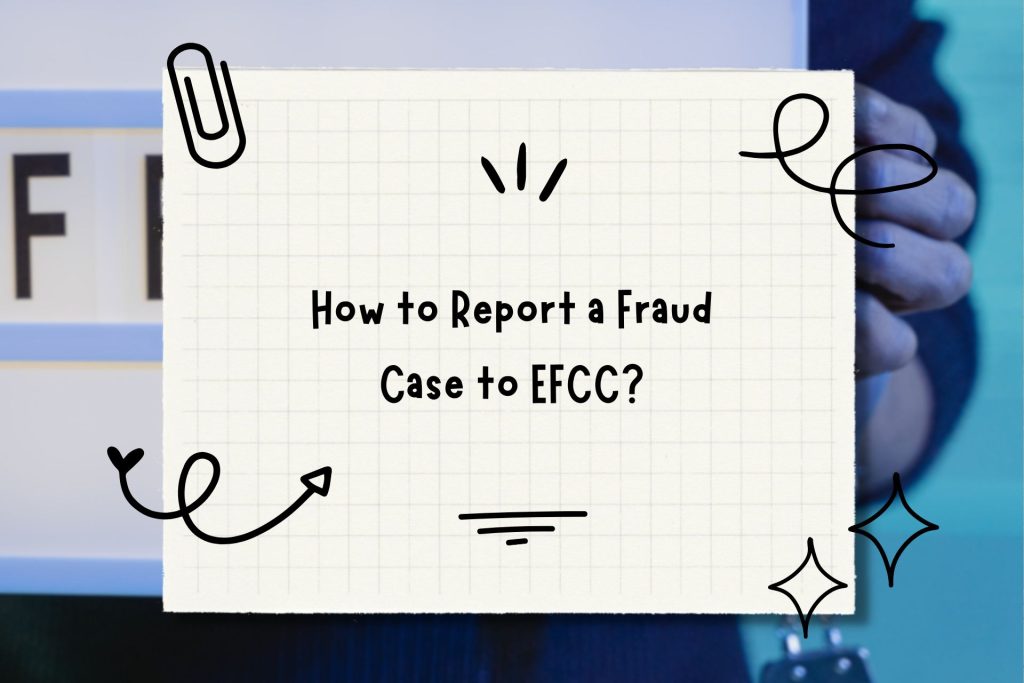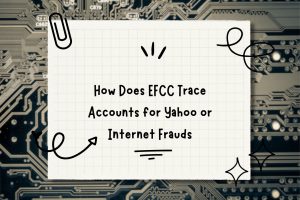If you find yourself caught in the web of fraud, it’s crucial to take swift action and reach out to the right folks who can set things straight.
In Nigeria, the Economic and Financial Crimes Commission (EFCC) is the go-to crew for digging into financial fraud and making sure the bad guys face the music.
Now, I won’t sugarcoat it – reporting a fraud case to the EFCC is no walk in the park. It can be a real uphill climb, but it’s a necessary step to ensure that justice prevails and the culprits are held accountable for their misdeeds.
When you’re ready to make your move, gather up every bit of evidence you can get your hands on – think receipts, bank statements, contracts, and any digital breadcrumbs like emails or messages that shine a light on the fraud.
Be prepared to spill the beans about yourself and the person behind the scam – names, addresses, and phone numbers. It’s all part of building a solid case and giving the EFCC the ammo they need to take action.
Now, here’s the kicker – reporting fraud to the EFCC isn’t a quick fix. It’s a marathon, not a sprint, and it might be a while before you see any fireworks. But by stepping up and reporting the scam, you’re not just fighting for your own corner – you’re helping to safeguard others from falling into the same trap in the future.
So, if you’ve got a hunch that you’ve been swindled, don’t sit on your hands. Reach out to the EFCC and let them know what’s what. It’s a bold move, but it’s the right one.
The EFCC’s Role in Investigating Fraud

If you suspect that you have been a victim of fraud, it is essential to report it to the appropriate authorities. The Economic and Financial Crimes Commission (EFCC) is the primary agency in Nigeria responsible for investigating and prosecuting financial crimes, including fraud.
Fraud is a deliberate act of deception or misrepresentation that results in financial or personal gain for the perpetrator. It can take many forms, including identity theft, credit card fraud, investment scams, and more. Fraud can have significant financial and emotional consequences, so it is crucial to take action as soon as possible.
The EFCC’s role is to investigate and prosecute financial crimes, including fraud. The agency has the power to investigate and prosecute cases involving public officials, financial institutions, and other individuals or organizations involved in financial crimes.
To report a fraud case to the EFCC, you need to provide as much information as possible about the fraud, including the identity of the perpetrator, the nature of the fraud, and any evidence you have to support your claim. You can report fraud cases to the EFCC through their website, email, or phone number.
Recommended articles
Steps to Report a Fraud Case to the EFCC
If you have been a victim of fraud, you can report the case to the Economic and Financial Crimes Commission (EFCC) in Nigeria. Here are the steps you need to follow:
1. Gathering Evidence
Before you report the fraud case to the EFCC, it’s important to gather as much evidence as possible. This can include documents, emails, bank statements, and any other relevant information that can help the EFCC investigate the case. Make sure you keep all the evidence safe and secure.
2. Contacting the EFCC
To report the fraud case to the EFCC, you can contact them through their website, email, or phone. Provide as much information as possible about the fraud, including the evidence you have gathered. The EFCC will review your complaint and determine if it falls within their jurisdiction.
3. Filing a Formal Complaint
If the EFCC determines that your complaint falls within their jurisdiction, you will need to file a formal complaint. You can do this by visiting the EFCC office in person or submitting the complaint online. Make sure you provide all the necessary information and evidence to support your complaint.
4. Following Up on Your Case
After you have filed a formal complaint, the EFCC will investigate the case and provide updates on the progress of the investigation. It’s important to follow up on your case regularly and provide any additional information or evidence that may be required. If the EFCC determines that a crime has been committed, they will take appropriate legal action.
So, by rolling up your sleeves and taking these steps, you’re not just reporting a fraud case to the EFCC, you’re helping to prevent others from falling victim to similar scams.
Keep your eyes peeled and your radar on high alert for anything fishy, and don’t hesitate to report any suspicious activity to the authorities.
After Reporting: What to Expect
Once you have reported a fraud case to the Economic and Financial Crimes Commission (EFCC), it is important to know what to expect next. This section will outline the typical investigation process, legal proceedings, and victim support and resources that may be available to you.
Investigation Process
After you have reported a fraud case to the EFCC, an investigation will be launched to determine the validity of your claims. The investigation process may involve interviews with witnesses, analysis of financial records, and other investigative techniques. It is important to note that investigations can take time, and you may not receive regular updates on the progress of the investigation.
Legal Proceedings
If the EFCC determines that there is enough evidence to pursue legal action, the case will be referred to the appropriate legal authorities. Legal proceedings can be lengthy and complex, and it is important to have a qualified legal representative to guide you through the process. If you are a victim of the fraud, you may be called upon to testify in court.
Victim Support and Resources
As a victim of fraud, you may be eligible for support and resources to help you through the process. The EFCC has a Victim Support Unit that can provide assistance with counseling, legal representation, and other resources. Additionally, there may be other organizations and agencies that can provide support, such as victim advocacy groups and financial institutions.
In conclusion, reporting a fraud case to the EFCC is an important step in fighting against financial crimes. It is important to be aware of what to expect after reporting, including the investigation process, legal proceedings, and victim support and resources that may be available to you.
It’s all about looking out for each other and keeping the bad guys on their toes.






